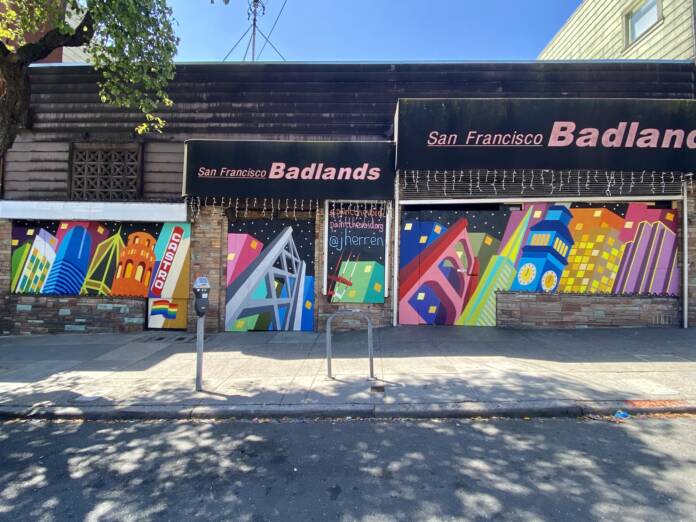Nightlife as we know it is dead.
In the late summer of 2020 we must all be aware that we will not return to Saturday night drinks in the Castro anytime soon.
If and when we get out of COVID, many of our cherished venues and parties (and nightlife figures) will be either gone or shells of themselves.
They will only exist through the provenance of bar owners who bought and paid for their spaces decades ago, and who have managed the means to keep them closed potentially for years to come.
As I have said at several of the protests that have formed in the Castro around Black queer and Black trans lives: We have real opportunities in supporting the creation of places where marginalized Black, brown, indigenous, trans and/or women of all experiences take lead and bring us to new directions.
What existed pre-COVID was slow progression fed by—and stingily doled out by—established, connected, and known people or those in proximity to said people.
It was venues who made cis and trans women uncomfortable for wanting to have a drink with friends. It was venues that made those who were visually gender non-conforming, incongruent and unabashedly queer unwelcomed. It was spaces that were not accessible for individuals who were disabled and who used mobility devices. Or spaces that were so niche in their “type” that we were made invisible for daring to cross their threshold.
Post-COVID Castro nightlife can be a new day.
One that I firmly believe is being advocated for by the young Black and brown individuals who spearhead the Bay Area Queer Nightlife Coalition, who held a public forum last week that began to address many of these issues.
One that is centered around the joy of close contact, connection and collaboration through accountability and sound action steps that are meant to move everyone to a brighter future.
It can be institutionally pro-Black, pro-trans, pro-woman, pro-femme, pro-disabled, pro-immigrant. It can be actually affirmative rather than merely tokenizing, passive aggressive, invisiblizing, and hyper-sexualized.
But that will take folks working on their own shit to be better people now.
In a time where Black Lives Matter signage is printed on every window like the blood of lambs trying to dissuade the final plague, it is easy to forget that Black lives matter while we still live and breathe.
It is not a death note to the abused and departed.
The movement for Black lives seeks to create environments that cherish us while we are still here.
Recognize the urgency of our fight for respite and relief.
Defend and advocate for our agency to be welcomed not as guests, but hosts to our own home and community venue.
If you do the work in this time of quarantine, and continue to work on it post-quarantine, everyone can benefit and queer nightlife can actually be the thing some of y’all claim it already is. (It’s not there yet sis, don’t play.)
I came to Castro 10 years ago as an underage runaway teenager from a conservative upper middle class household in North Bay.
I saw how young Black and brown lgbt youth who were too queer to gather anywhere else in the city safely, and too young and/or poor to go into the clubs, were pushed out from the only place that had the potential to let us be who we are.
I have seen the ways Blackness is business when it could be capitalized on—while having Black bartenders, door people, and entertainers berated with hatred and their calls for concern and safety fall on deaf ears.
I have been in consul with many trans community members and/or proud Black and brown locals who were emotionally broken down, cops called, and humiliated to favor the safety and comfort of white patrons who knowing knew they’d be protected even when they did harm.
It must end. Not solely because it is the just thing to do, but because it must be the thing we do. The very soul and essence of the Castro depends on it.
It is true that Sylvester was the first grand marshal of San Francisco pride. But baby you gotta make me/we/us feel like we mean something, even when you may not immediately personally gain.
That’s allyship, that’s solidarity, that’s collusion for a common cause and case for equity.
To be an ally is a verb, it is what one does. To be an ally is not merely self proclaimed, it is given by those seeking support. One supports by listening, not speaking what we should or should not do/be. It is by alleviating, uplifting, investing.
What are you?
Levi Maxwell is Bay Area-born San Francisco resident focusing on LGBTQ homelessness and queer youth advocacy and a lecturer on race, culture, and history.








